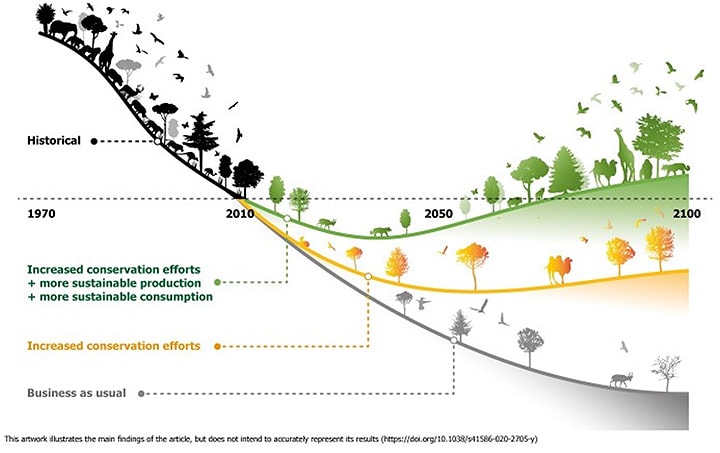Biodiversity loss is an alarming issue that has gained significant attention recently. It refers to the decline in the variety and abundance of different species of plants, animals, and other living organisms. The loss of biodiversity is a major threat to the balance of the planet’s ecosystem and many species’ survival. The issue of biodiversity loss is multifaceted and has far-reaching consequences, from environmental to social and economic impacts.

One of the main causes of biodiversity loss is habitat destruction. As humans continue to expand their populations and develop infrastructure, natural habitats such as forests, wetlands, and coral reefs are destroyed or fragmented. This can have a significant impact on species’ ability to survive and reproduce, leading to a decline in population numbers and ultimately, extinction. For example, the destruction of tropical rainforests has led to the extinction of many plant and animal species, including the orangutan and Sumatran tiger.
Another cause of biodiversity loss is climate change. As temperatures rise and weather patterns change, species are forced to adapt or risk extinction. Many species are unable to adapt quickly enough to the changing conditions, and as a result, their populations decline. For example, as sea levels rise, coral reefs are threatened, threatening the survival of many marine species that rely on these ecosystems for food and shelter.
The loss of biodiversity has far-reaching consequences for humans and the environment. Biodiversity loss can lead to reduced food security, decreased availability of clean water, and increased vulnerability to natural disasters. It also has economic impacts, as many industries such as agriculture, forestry, and fisheries rely on biodiversity for their livelihoods.

To combat biodiversity loss, it is essential to take action on multiple fronts. This includes protecting and restoring natural habitats, reducing greenhouse gas emissions to address climate change, and reducing pollution. It also involves promoting sustainable practices in industries such as agriculture and forestry and increasing public awareness about the importance of biodiversity.
In conclusion, biodiversity loss is a significant issue that has far-reaching consequences for humans and the environment. It is caused by a range of factors, including habitat destruction, climate change, and pollution. To address this issue, it is essential to take action on multiple fronts, including protecting and restoring natural habitats, reducing greenhouse gas emissions, and reducing pollution. By taking these steps, we can help to ensure that future generations inherit a planet rich in biodiversity.
This is a great issue you touched on, and more media-focused conversation must occur! When someone mentions biodiversity, I typically consider the unfortunate ramifications wildlife must endure because us humans encroach on their homes for our survival. However, I never realized the food insecurity and water politics aspects to this issue. Your post definitely made me aware about biodiversity implications, and I hope this reaches out to more people!
This is certainly a grave issue that needs more attention. It’s actually insane how interconnected other issues such as food insecurity also directly contribute to the issue. This post definitely made me more informed on an issue that desperately needs to be rectified.